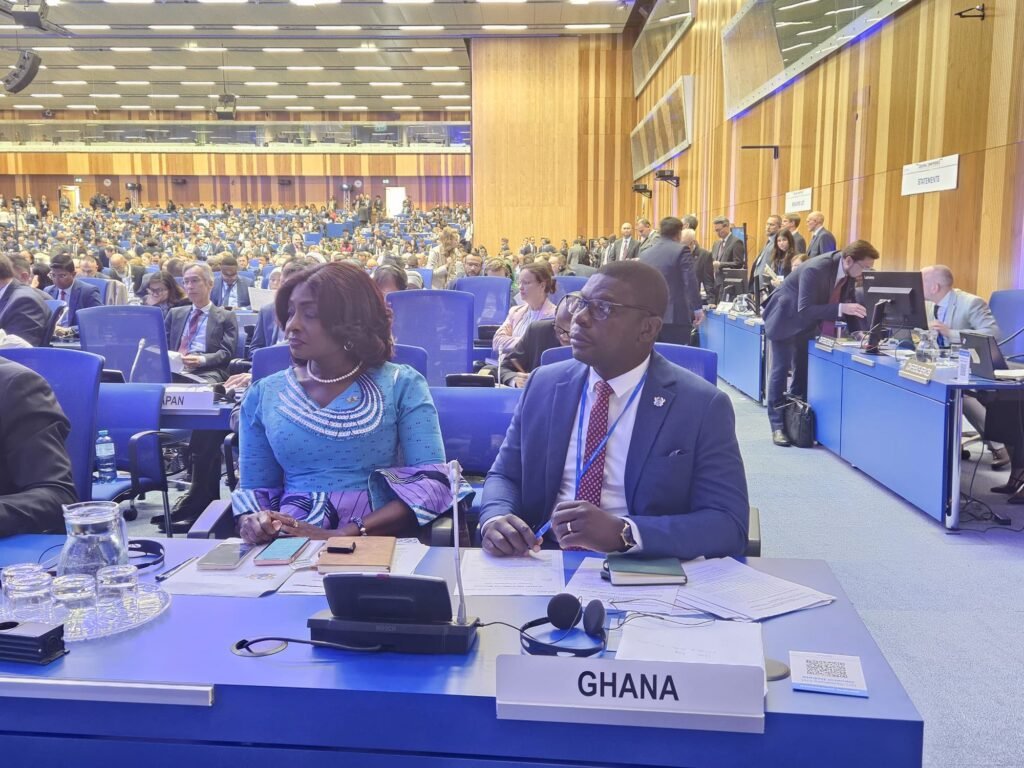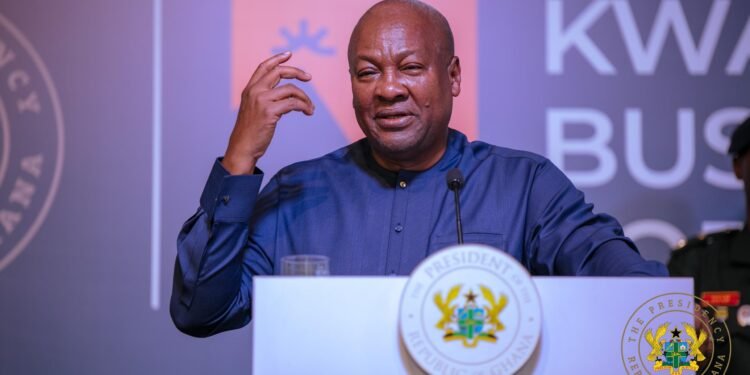Ghana has renewed its pledge to harness nuclear energy as a driver of socio-economic transformation during the 69th General Conference of the International Atomic Energy Agency (IAEA) in Vienna, Austria.
The three-day gathering, held from September 15 to 17, 2025, brought together global leaders and experts in nuclear science and technology to deliberate on strengthening cooperation and ensuring the safe use of nuclear power.
Leading Ghana’s delegation, the Deputy Minister for Energy and Green Transition delivered a statement outlining the country’s nuclear power roadmap and the progress achieved through close collaboration with the IAEA.
He underscored that under the leadership of President John Dramani Mahama, Ghana views nuclear science and technology as a critical tool for advancing national development, particularly in the areas of energy security, industrialisation, and economic resilience.
Presenting Ghana’s position to the General Conference, the Deputy Minister reaffirmed that the country has made significant strides in preparing for nuclear power development.
He noted that Ghana’s roadmap, built in close partnership with the IAEA, demonstrates both technical readiness and strong political commitment.

According to him, the government is determined to ensure that nuclear energy becomes part of a diversified, reliable, and sustainable power mix capable of supporting rapid industrial growth while meeting the needs of households and businesses.
High-Level Bilateral Meetings
Beyond the plenary session, Ghana’s delegation also took part in a series of high-level bilateral meetings aimed at strengthening cooperation with international partners.
Discussions were held with senior officials from the U.S. Arms Control and Nonproliferation Bureau, with a particular focus on advancing the 123 Agreement, a key framework for peaceful nuclear cooperation between Ghana and the United States.
The delegation also engaged with IAEA Director-General Rafael Mariano Grossi. Their meeting centred on deepening technical cooperation, particularly in areas such as nuclear safety, regulation, and capacity building.
According to the Deputy Minister, this engagement underscored Ghana’s commitment to meeting the highest standards of safety and security as it pursues its nuclear power ambitions. Talks were also held with Chris Wright, Secretary of the U.S. Department of Energy, and senior officials of the U.S. Atomic Energy Commission.

These discussions highlighted opportunities for collaboration in nuclear technology and safety, further cementing Ghana’s determination to build a strong international network of partners as it moves closer to introducing nuclear power into its energy system.
The Deputy Minister emphasised that Ghana’s presence at the IAEA General Conference and its engagements on the sidelines are not symbolic but reflect a clear direction and purpose.
“Ghana is committed to building a safe, reliable, and secure nuclear energy programme,” he said, noting that the country will continue to invest in the human resources, regulatory structures, and infrastructure required to achieve this goal.
The Deputy Minister also used the opportunity to pay tribute to the late Dr. Ibrahim Murtala Mohammed, former Minister for Environment, Science, Technology, and Innovation, who was originally scheduled to head Ghana’s delegation but passed away unexpectedly earlier this year.
He described Dr. Murtala as a senior colleague and friend whose contributions to Ghana’s science and technology agenda will be remembered.

Ghana has long positioned itself as a leader in Africa’s nuclear power journey. With decades of experience through the Ghana Atomic Energy Commission and the operation of a research reactor, the country has been steadily working toward full-scale nuclear power.
The current roadmap aligns with the government’s broader agenda to expand energy access, reduce reliance on fossil fuels, and strengthen the resilience of the power sector.
Ghana’s renewed momentum comes at a time when many developing countries are seeking affordable, clean, and reliable energy solutions to support growth.
By engaging with international partners and demonstrating consistency in its nuclear aspirations, Ghana is reinforcing its image as a serious actor in the global energy transition.
For the Mahama administration, the pursuit of nuclear power is also closely tied to the green transition agenda. Officials argue that nuclear power, alongside renewable energy sources such as solar and wind, provides a viable path toward decarbonising the energy sector while ensuring a stable electricity supply for industry and households.

As the IAEA conference closed, Ghana’s delegation expressed optimism that the engagements in Vienna would accelerate both technical cooperation and international partnerships. The Deputy Minister reiterated that Ghana’s nuclear energy ambitions are not an abstract ideal but a concrete policy backed by careful planning, international support, and a vision to harness science and technology for socio-economic transformation.
With this renewed pledge on the global stage, Ghana has sent a clear signal that it intends to move beyond planning into implementation. The road ahead will require continued technical, financial, and diplomatic efforts, but the government insists that nuclear energy remains a strategic investment in the nation’s future.
READ ALSO: President Mahama to Launch “Accra Reset” at 80th UN General Assembly



















